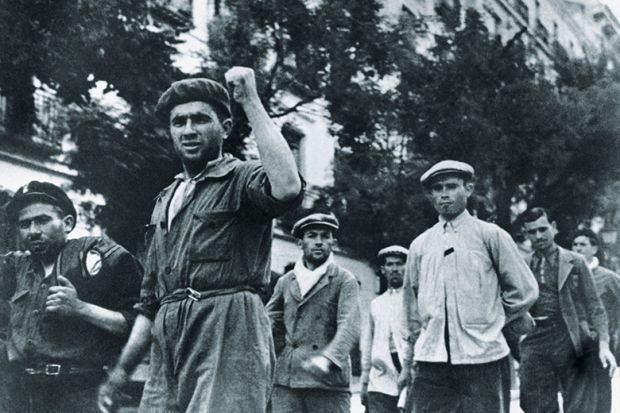"Jihadi John” was actually Mohammed Emwazi, a British citizen who had grown up in West London and studied computer programming at the University of Westminster. He was also the masked man who, in 2014, beheaded the US journalist James Foley and at least six other journalists and aid workers in Syria. His relatives claimed that he had been radicalised after being targeted by the British security services; Islamic State, however, lauded him for being a fearless warrior.
Emwazi was a foreign war volunteer, or someone who chooses to leave his country of nationality to take part in an armed conflict abroad. In his new book, Nir Arielli sets out to explain why men would risk their lives in this way. He shows that volunteers frequently failed to grasp the intricacies of the political issues at stake. They sometimes found themselves fighting alongside gangsters and other criminals. Indeed, some of the foreign volunteers in Croatia were shocked to discover that their comrades in arms were drug-addicted neo-Nazis. Disillusionment was widespread.
Who were these adventurers? They were almost always men. They had a reputation for violence, criminality and alcoholism. They cultivated a belligerent form of masculinity. In the words of one British mercenary fighting in eastern Croatia in 1992, “I always wanted to kill legally.” He had the words “Yorkshire Ripper” written on his helmet.
But others were motivated by high idealism. This was particularly true among those British philhellenes (lovers of Greece) who signed up to fight in the Greek War of Independence in the early 1820s. In the words of the Greek Committee, meeting in the Crown and Anchor Tavern in London in 1823, only armed struggle could free “the classic land of Greece” from “those usurping barbarians, whose tyranny had for centuries degraded and desecrated the soil”. In total, more than 1,000 British volunteers (including the poet Lord Byron) made the trip to Greece in order to fight.
Even more significant, about 32,000 foreign volunteers joined the International Brigades during the civil war in Spain in the 1930s. Harry Pollitt, the chairman of the Communist Party of Great Britain, summarised the chief ideological reason for their joining when he proclaimed that the global struggle was between “the popular forces of democracy, law, and order” and the “bestial, terroristic forces of fascism”. Neutrality was not an option.
Arielli is a cautious analyst. He understands that it is problematic to equate radicalised terrorists such as Osama bin Laden or Emwazi with freedom fighters such as Byron or Che Guevara. This means, however, that he fails to answer a challenging question posed by Asad Khan, a trustee of the Convoy of Mercy charity. Khan observed that Islamic foreign fighters were labelled “terrorists” even though they were risking their lives because “they believe their fellow Muslims are suffering”. But “the young men who left Oxford and Cambridge in the 1930s to fight the Franco regime in Spain”, Khan went on, “were they terrorists” too? Arielli doesn’t tell us.
Joanna Bourke is professor of history at Birkbeck, University of London and the author of Deep Violence: Military Violence, War Play, and the Social Life of Weapons (2015).
From Byron to bin Laden: A History of Foreign War Volunteers
By Nir Arielli
Harvard University Press, 304pp, £27.95
ISBN 9780674979567
Published 26 January 2018




